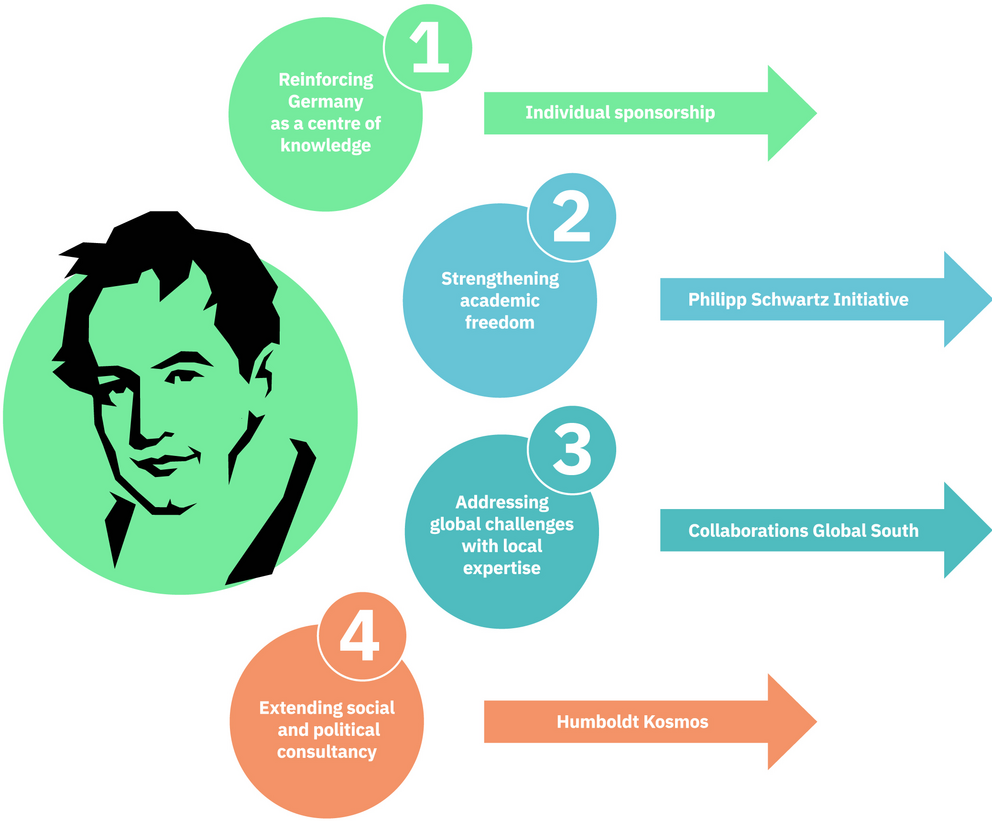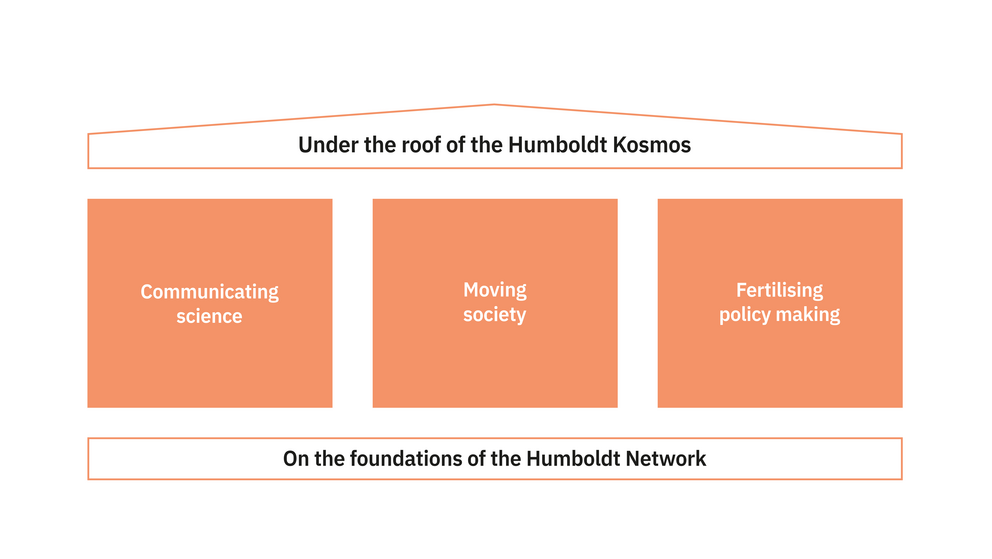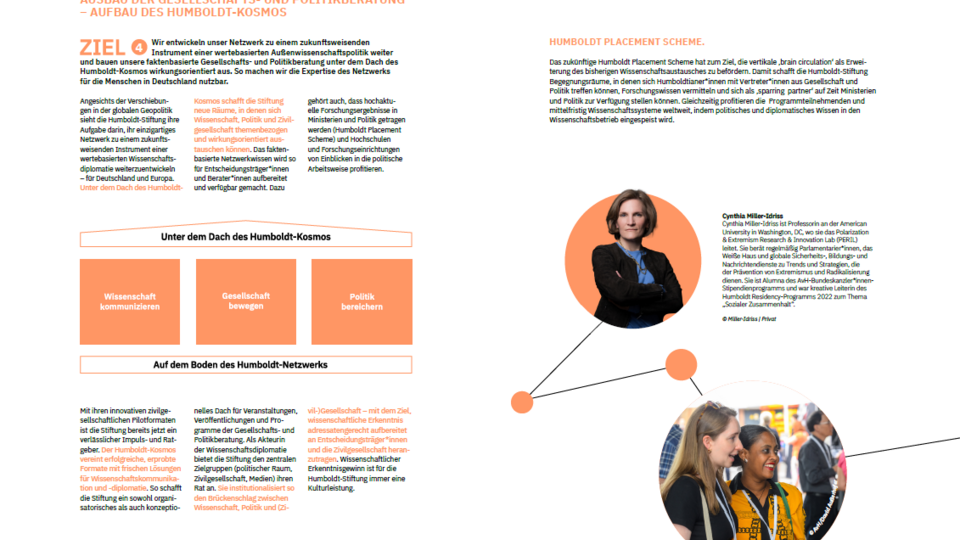Jump to the content
- {{#headlines}}
- {{title}} {{/headlines}}
Resilient science for a changing world - Strategy for the period 2024-28
The Alexander von Humboldt Foundation pursues the vision of a world-spanning network of outstanding researchers who help to develop fact-based solutions for a world in upheaval. The Foundation sponsors exchange amongst international researchers. It leverages the knowledge in the Humboldt Network and makes it applicable to science, politics and society – for the people of Germany, Europe and the world. Particularly in times of global crisis, this mission is more important than ever. In the coming five years, the Foundation will focus on four objectives (circles) and align its tools (arrows) to these goals.

The four goals at a glance
Objective 1: Reinforcing Germany as a centre of knowledge in a time of change – continuing to develop individual sponsorship
International cooperation is a constituent element of academic quality. International mobility has a structural impact on science systems. The Humboldt Foundation recruits outstanding international researchers for long-term collaborations with Germany and thus strengthens the German academic base. To this end, the Foundation creates attractive, inclusive opportunities with flexible, dynamic funding rates and global network coverage.
Objective 2: Strengthening academic freedom and protecting researchers at risk
Academic freedom is the basis for scientific quality, creativity and innovation. The Foundation defends liberal-democratic values in all its activities. It reinforces academic freedom worldwide and supports foreign researchers at risk through the Philipp Schwartz Initiative and European funding programmes. The Foundation campaigns for more certainty of action in international collaborations.
Objective 3: Addressing global challenges with local expertise – collaborations with the Global South
The Humboldt Network is an ideal connecting point for this purpose. The Humboldt Foundation gears its portfolio for non-European science systems to exchange with emerging, dynamic science systems in the so-called Global South (Georg Forster Research Fellowship Programme) and on collaborations with countries on the continent of Africa (Humboldt Research Hubs). The Humboldt Foundation consistently emphasises collaborations in which partners meet on an even playing field and it learns from its local network. It focuses on the systemic benefits that arise from the research activities of its sponsorship recipients for their own countries and regions.
Objective 4: Extending societal and political consultancy – expanding the Humboldt Kosmos
The multidisciplinary, worldwide Humboldt Network embraces researchers with diverse specialist knowledge. Depending on topic, this expertise can contribute to discourse in Germany, Europe and the world. Under the umbrella of the Humboldt Kosmos, the Foundation is expanding its fact-based social and political consultancy in an effective manner. To an even greater extent than in the past, it is creating space for members of its network to make their knowledge available to decision-makers in the political and social arenas.

Impact-orientated action
Commitment, accountability, self-reflection, transparency and quality assurance guide the Humboldt Foundation in fulfilling its mission. The Foundation is banking on competitive fellowships and awards, a quality-assured, digital selection process, innovative structures and resourceful, independently responsible staff. It is gaining significant recognition for its advocacy of quality, freedom and security of research, science diplomacy and science communication. The Foundation continuously monitors the achievement of its goals by evaluating its activities based on impact indicators and target values.
The entire strategy

